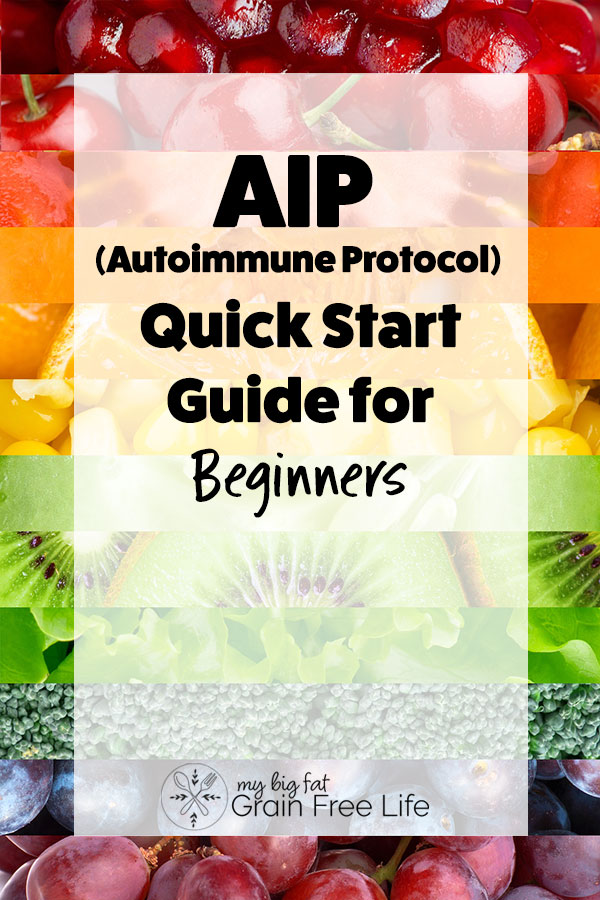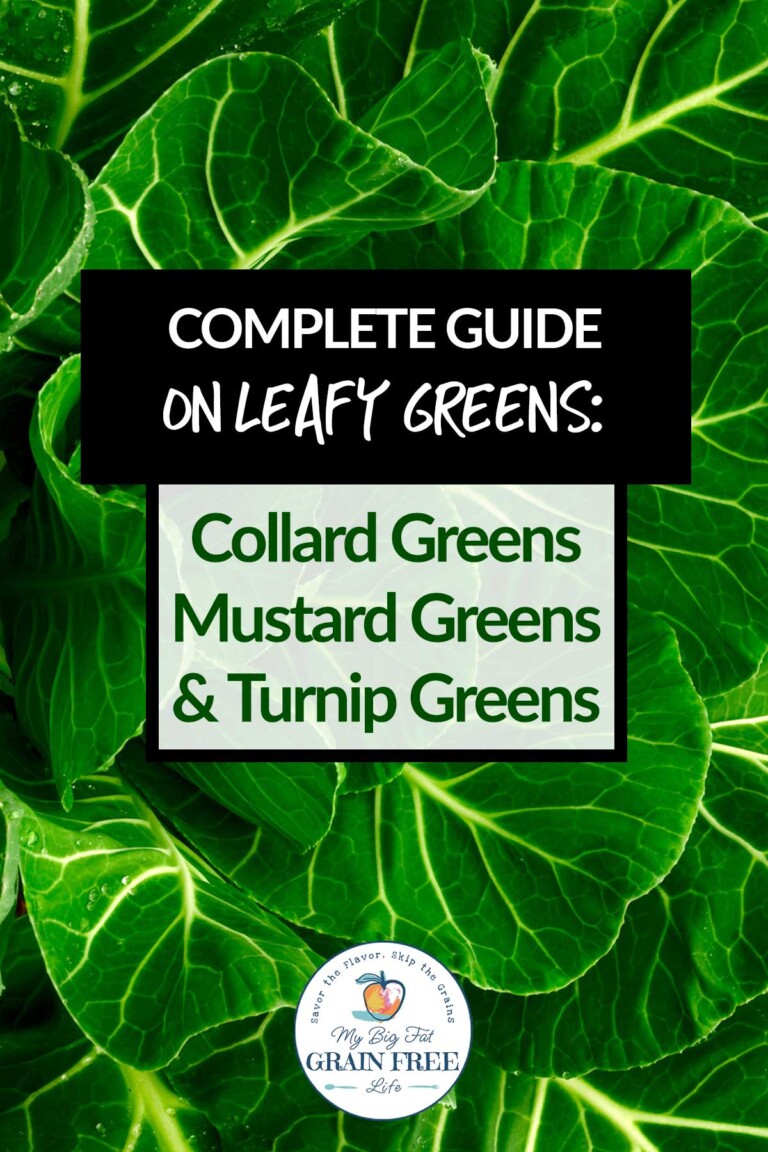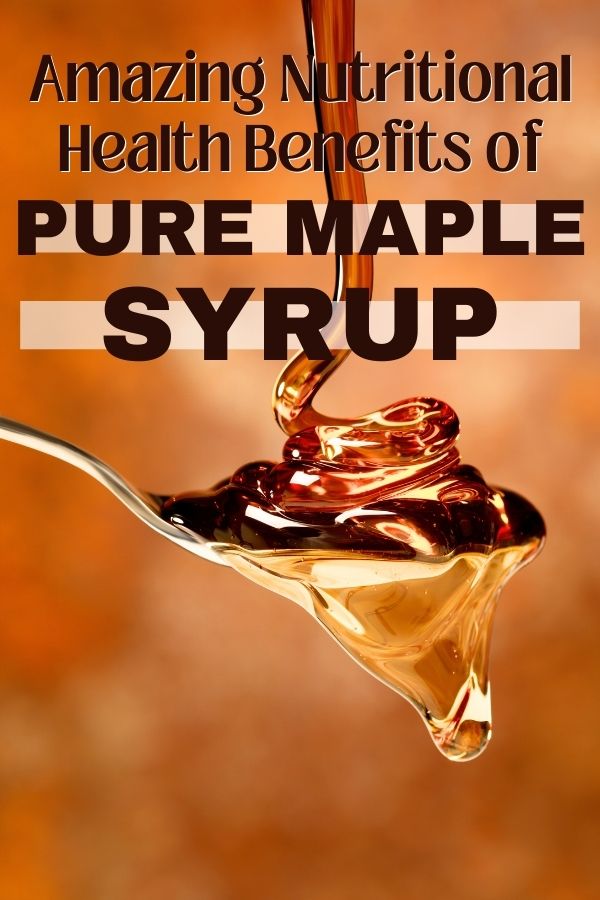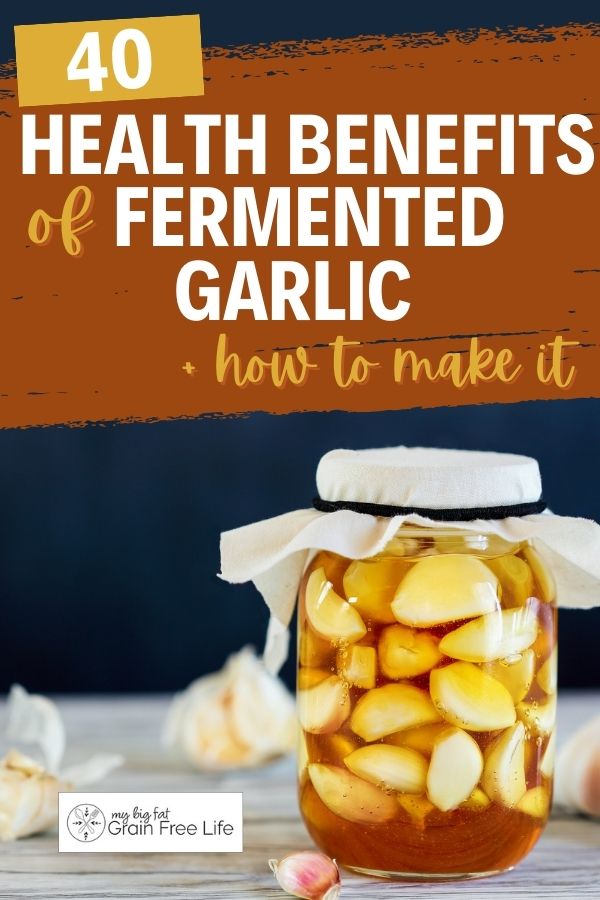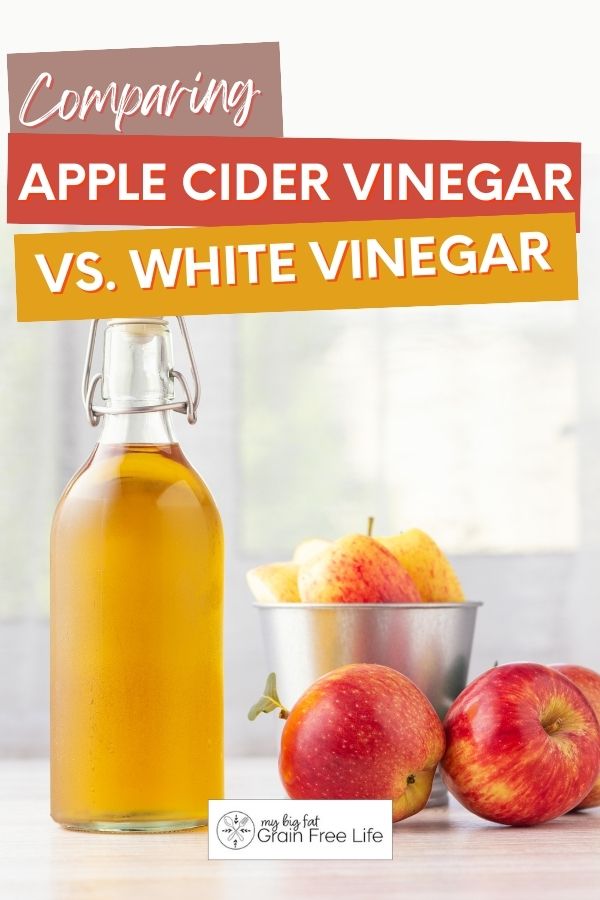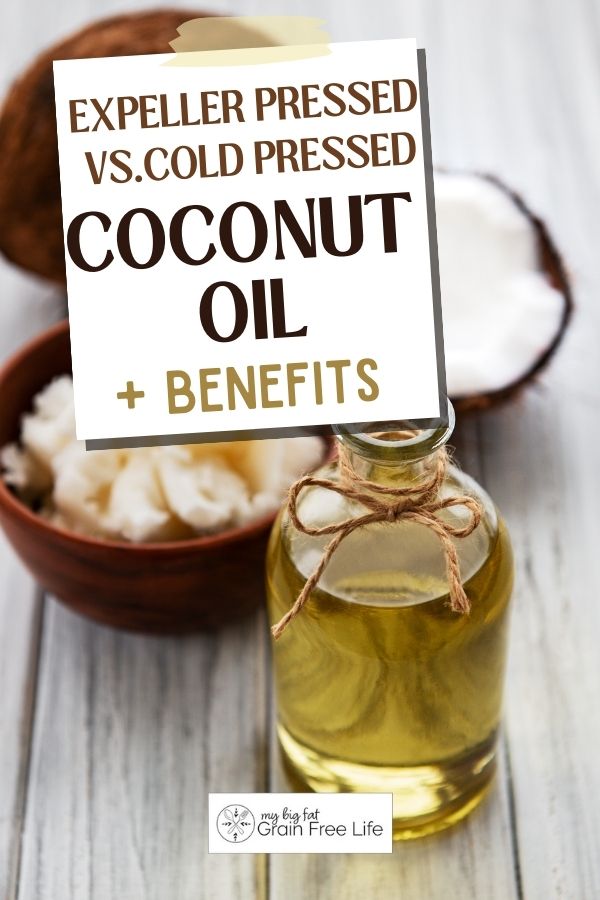The Complete Printable List of Nightshade Foods
This post may contain affiliate links. If you make purchase after clicking a link, I may receive a commission at no extra cost to you.
Last Updated on June 21, 2023
Are you trying to keep your diet free from nightshades? Our printable list of nightshade foods will be a big help to you as you learn what foods are a part of the nightshade family.
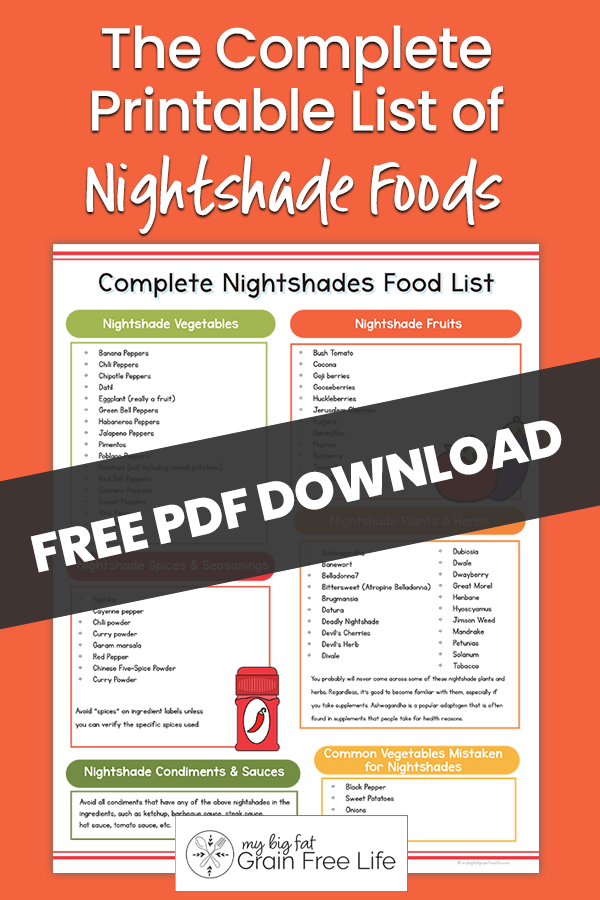
Printable List of Nightshade Foods
If you are looking for a handy way to keep a list of nightshade foods, you can download our free PDF printable. Just scroll to the bottom of this post to get access to it.
First, let’s learn a bit about nightshades and why someone might consider avoiding them.
What Are Nightshades?
Nighshades like tomatoes, potatoes, and peppers are part of the Solanaceae family of plants. They contain solanine, an alkaloid that may be toxic when consumed in large quantities.
Solanine is used by these plants as a natural pesticide. It is thought by some that solanine can cause people with an autoimmune condition to have an increase in inflammation when they eat nightshade foods.
This is certainly true for me!
Although avoiding nightshades for some is beneficial, they do have nutritional value and are rich in vitamin C, A, E,K, folate, and potassium when comsumed in moderation.
When you have an autoimmune disease, intestinal permeability (AKA leaky gut), chronic inflammation, joint pain, or just a food sensitivity to nightshades, it can be helpful to avoid eating them.

The Most Common Nightshades
The most common nightshades that you are likely familiar with are tomatoes, potatoes, and peppers. But, there are some other vegetables, fruits, and herbs that you should avoid if you have eliminated nightshades due to a special diet, like the autoimmune protocol.
If you are sensitive to acidic foods, avoiding nightshades will help improve your symptoms.
Full List of Nightshades
For a complete list of nightshades keep reading. If you’d like a printable list of nightshade foods, scroll to the bottom to claim our free PDF download. Our free printable food lists can be put in your recipe binder or on your fridge for easy reference.
Nightshade Vegetables
Some of the most common nightshade vegetables that are often a struggle to give up are tomatoes and potatoes. For me personally, tomatoes have been the most difficult to ditch. Thankfully I have found delicious tomato-free ketchup, tomato-free BBQ sauce, and tomato-free salsa that actually taste great!
Nightshade Vegetables List
- Banana Peppers
- Chili Peppers
- Chipotle Peppers
- Datil
- Eggplant (really a fruit)
- Green Bell Peppers
- Habaneros Peppers
- Jalapeno Peppers
- Pimentos
- Poblano Peppers
- Potatoes (not including sweet potatoes – you can substitute white sweet potatoes in place of the nightshade variety in recipes.) Check out these white sweet potato recipes for inspiration.
- Red Bell Peppers
- Serrano Peppers
- Sweet Peppers
- Thai Peppers
- Tomatillos
Potatoes are the only root vegetable that is a nightshade. You might enjoy: Sweet Potato vs Russet Potato
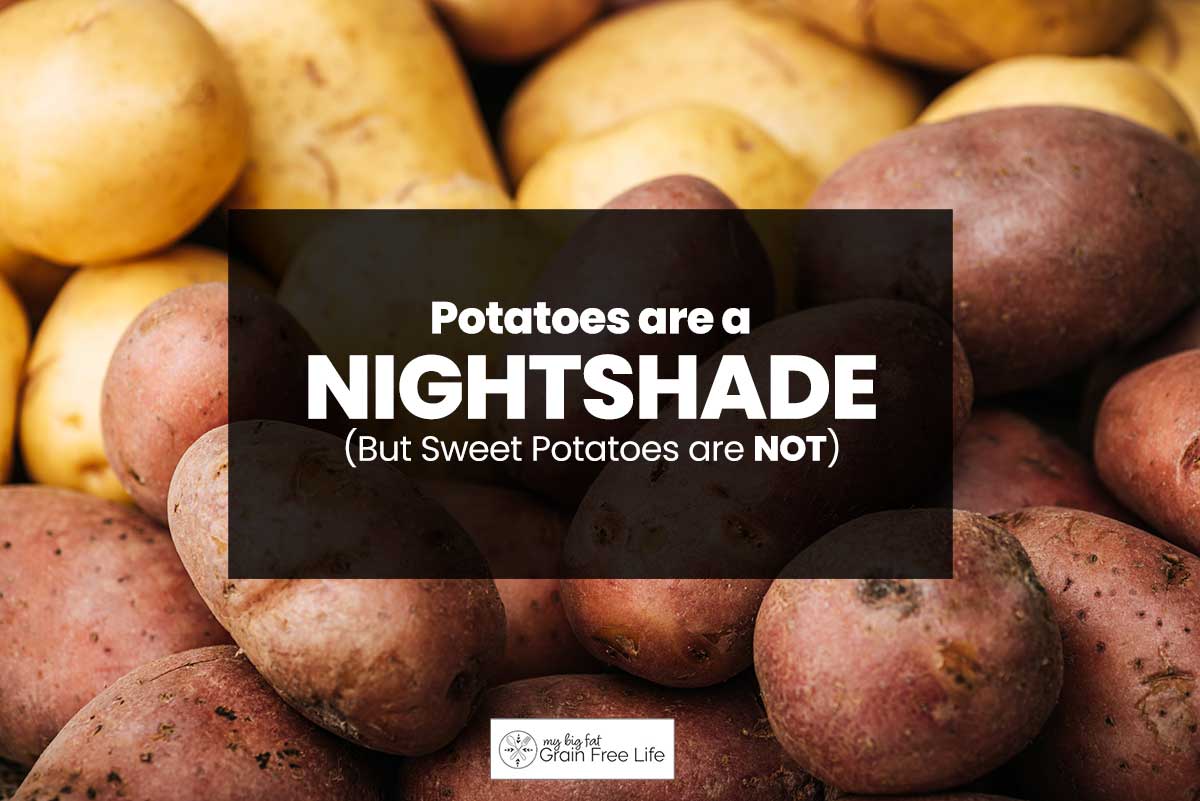
Nightshade Fruits
If you like to order smoothies or use smoothie powders, pay close attention to the ingredients. You’ll often find goji berries and ashwagandha (listed in the nightshade herbs and spices below) as part of the mix.
You’ll notice tomatoes listed as a nightshade fruit, that’s because they are not an actual vegetable, but considered fruit instead.
- Bush Tomato
- Cocona
- Goji berries
- Gooseberries
- Huckleberries
- Jerusalem Cherries
- Kutjera
- Naranjillas
- Pepinos
- Sunberry
- Tamarillos
- Tomatoes
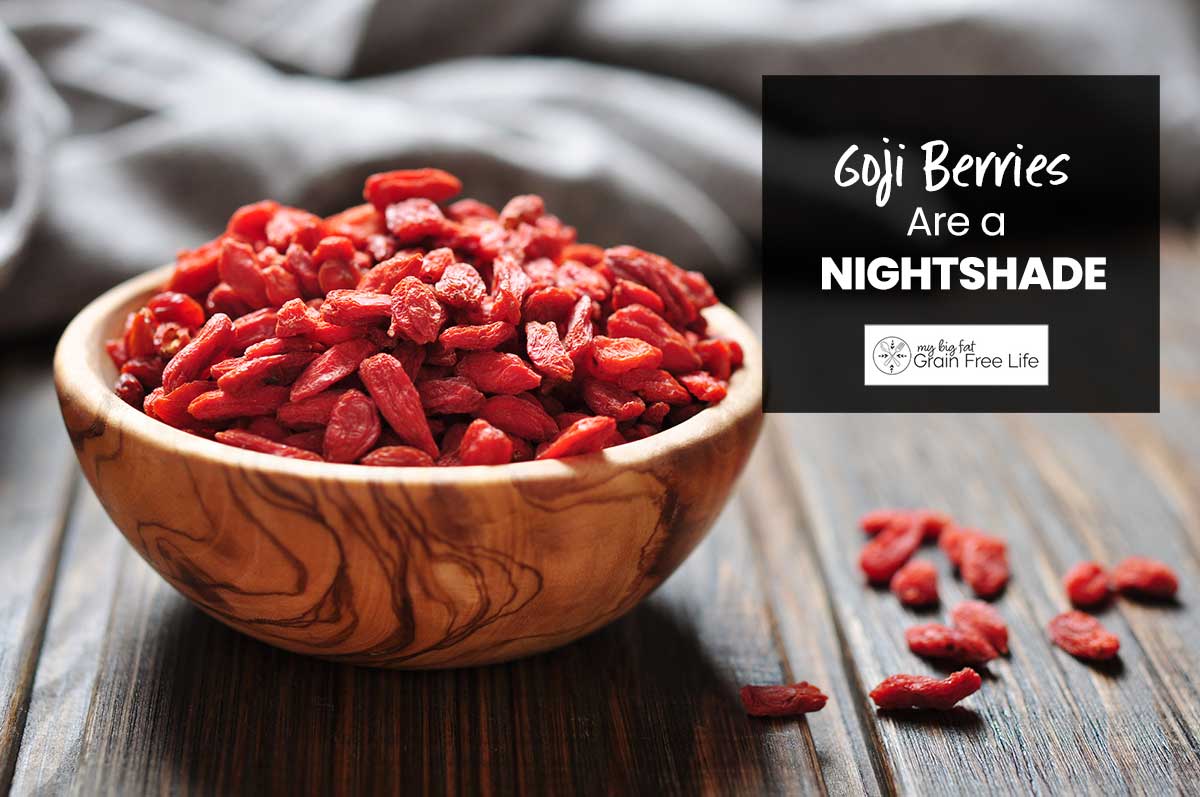
Nightshade Spices & Seasonings
Avoid “spices” on ingredient labels unless you can verify the specific spices that are included in that blanket word. Any spice mix that uses a nightshade shold be avoided. Paprika is a common spice used in a lot of pre-mixed seasonings or seasoning blends.
Some spices are good for you, for example, there are lots of health benefits of cayenne pepper, but since it’s a nightshade, it should still be avoided.
- Paprika
- Cayenne pepper
- Chili powder
- Curry powder
- Garam marsala
- Red Pepper
- Chinese Five-Spice Powder
- Curry Powder
Nightshade Plants & Herbs
You probably will never come across some of these nightshade plants and herbs. Regardless, it’s good to become familiar with them, especially if you take supplements. Ashwagandha is a popular adaptogen that is often found in supplements that people take for health reasons.
- Ashwagandha
- Banewort
- Belladonna7
- Bittersweet (Atropine Belladonna)
- Brugmansia
- Datura
- Deadly Nightshade
- Devil’s Cherries
- Devil’s Herb
- Divale
- Dubiosia
- Dwale
- Dwayberry
- Great Morel
- Henbane
- Hyoscyamus
- Jimson Weed
- Mandrake
- Mandragore
- Petunias
- Solanum
- Tobacco
Nightshade Condiments & Sauces
Avoid all condiments that have any of the above nightshades in the ingredients, such as ketchup, barbeque sauce, steak sauce, hot sauce, tomato sauce, etc.
Scroll to the bottom of this post for some wonderful nightshade-free substitutes for popular condiments.
Common Vegetables Mistaken for Nightshades
Some people might think that black pepper is a nightshade because it is called “pepper,” but rest-assured, black pepper that’s used as a seasoning is not a nightshade.
- Black Pepper
- Sweet Potatoes
- Onions
- Zucchini
- Okra
Autoimmune Protocol
An anti-inflammatory diet, such as the AIP diet will eliminate nightshades and other inflammatory foods in an attempt to improve the gut microbiome and decrease inflammation that can cause flare-ups.
If you suffer from irritable bowel syndrome or inflammatory bowel disease this can be especially helpful for you.
While the paleo diet allows nightshades, the autoimmune paleo diet does not allow them and instead encourages anti-inflammatory foods to encourage an improvement in overall health.
Health Benefits of Nightshades
For people without health issues, eating nightshades in moderation is not a problem. They actually contain antioxidants that can help protect cells. Some nightshades can decrease the risk of certain types of cancer due to the antioxidant lycopene.
Nightshade vegetables and fruits also contian important vitamins and minerals.
Are Nightshades Inflammatory?
Nightshade foods may cause inflammatory responses in people who have autoimmune disorders. An overactive immune system might cause a flare-up in symptoms. It is thought that nightshades themselves don’t actually cause inflammation, rather they increase inflammation that may already be present.
When you have a leaky gut sometimes that triggers food allergies and a nightshade intolerance.
Who Should Avoid Nightshade Vegetables?
Solanine is an alkaloid found in nightshades and can make you feel bad if you eat too much of it. For people with autoimmune disorders, it may be beneficial to eliminate nightshades from their diet to help combat an increase in inflammation.
Nightshade Allergy Symptoms
Not all people who have reactions to nightshades have a nightshade allergy. It may be that nightshades cause their pre-existing conditions to flare up, such as psoriasis, rheumatoid arthritis, acid reflux, irritable bowel syndrom, etc.
Allergic symptoms to nightshades may include the following:
- acid reflux
- gas
- bloating
- diarrhea
- heartburn
- achy joints
- fatigue
- skin rash
- psoriasis flare-up
Reasons You May Want to Avoid Nightshades
If you suspect that you have inflammation in your body or you have a known autoimmune disorder, it might be a great idea to go on an elimination diet. When you remove certain inflammatory foods from your diet you allow your body to heal and recover from excess inflammation.
Eliminating nightshades can also help heal a leaky gut and improve overall gut health.
Nightshade Substitutes
After being nightshade-free for 7 years, I finally found some tomato-free condiments that actually TASTE GREAT! The ketchup is my favorite; I don’t even miss the real thing! The BBQ is also delicious.
I do squeese some more lime and add a dash of salt to the salsa though. In addition, I add some extra seasonings to the marinara sauce.
- Nightshade-free ketchup
- Nighshade-free BBQ sauce
- Nightshade-free salsa
- Nightshade-free marinara sauce
- Malanga instead of potatoes
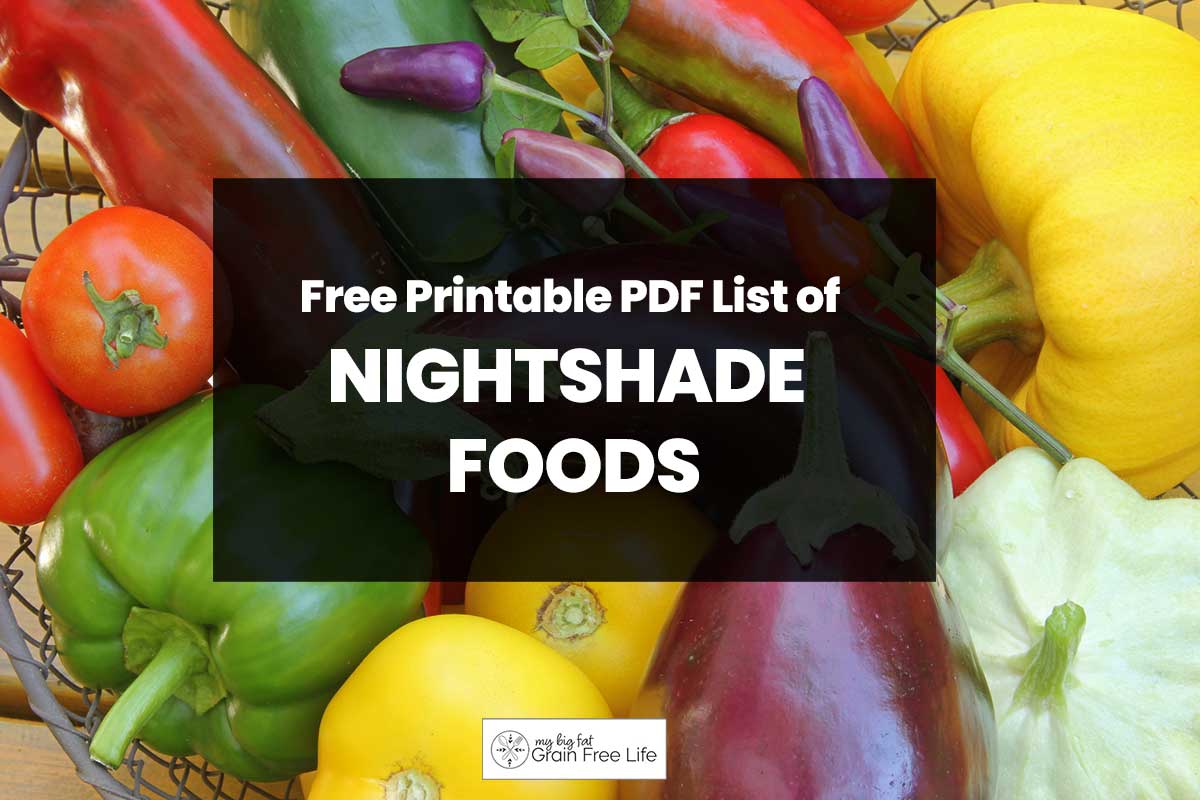
Free Printable List of Nightshade Foods PDF
You can print this list of nightshade foods and place it in your recipe binder or laminate it and stick it to your fridge for easy access.
Final Summary
When you have a chronic illness the best way to combat it is by eating a well-balanced diet full of whole foods and leafy greens. It’s important to eat nutrient-dense foods and avoid the ones that can cause your symptoms to flare.
If you haven’t considered an elimination diet, perhaps you should. I have been able to put my psoriasis and rheumatoid arthritis into remission through diet and nutrition. Unfortunately, nightshades are a huge problem-food for me, and I have to completely avoid them, even though I am no longer in an elimination phase of the AIP.

